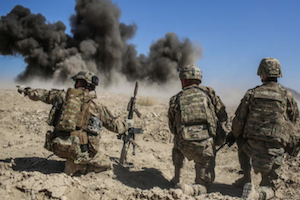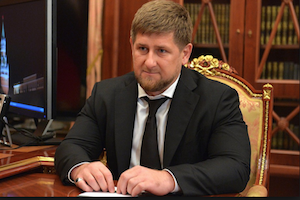ISIS Reaps Gains From the Pakistan-India Rivalry in Afghanistan
By Umair Jamal
July 21, 2020, the CACI Analyst
The growth of the terrorist organization known as the Islamic State in Iraq and Syria (ISIS) in Afghanistan poses a formidable challenge to India and Pakistan’s security interests in the region. Recently, an ISIS-claimed attack on a Sikh Gurudwara in Afghanistan involved a suicide bomber from India. On April 4, Afghan security forces arrested a Pakistani national and a high-ranking ISIS commander in Afghanistan, who authorized the Gurudwara attack. Reports indicate that ISIS is rapidly gaining recruits from India and Pakistan for its Afghanistan and Central Asia operations. The emerging threat in this regard would require close counterterrorism cooperation between Islamabad and New Delhi if the group is to be successfully defeated in Afghanistan. However, given Pakistan and India’s competition and record of undermining each other’s interests in Afghanistan, ISIS is set to gain exponentially in the coming months.

Central Asian Salafi-Jihadi and Al Qaeda: From Bayat to Global Jihad
By Uran Botobekov
May 2, 2019, the CACI Analyst
In January 2019, the Central Asian terrorist group Katibat Tawhid wal Jihad (KTJ) publicly renewed its Bayat (oath of allegiance) to Ayman al-Zawahiri, al Qaeda’s global chief. More than seven years after the killing of Osama bin Laden, al Qaeda continues to attract Central Asian Salafi groups. This trend has intensified since the start of the Syrian civil war, where several thousand radical Islamists from Central Asia went to wage Jihad. The conflict has allowed al Qaeda to claim Syria as its newest and most important safe haven for a global Jihad ideology. The ideological assimilation of the Central Asian groups with al Qaeda took place precisely in Syria.

Families of ISIS Fighters Return to North Caucasus
By Huseyn Aliyev
May 23, 2018, the CACI Analyst
Since December 2017, following the military defeat of the terrorist organization known as the Islamic State in Iraq and Syria (ISIS), several hundred Russian citizens, mostly from the North Caucasian republics of Chechnya, Dagestan and Ingushetia, have been brought back to Russia from Syria and Iraq. The returnees are families of ISIS fighters from the North Caucasus. So far, authorities have detained and prosecuted many returnees upon their return to the North Caucasus. The Chechen leader Ramzan Kadyrov has masterminded the return of North Caucasus nationals from the Middle East, using the opportunity to boost his image as a regional leader.

Abu Zar and Al Qaeda’s presence in Central Asia
By Jacob Zenn
January 16th, 2017, The CACI Analyst
Abu Zar al-Burmi was one of the most prominent Islamic Movement of Uzbekistan (IMU) muftis and a close associate of the Pakistani Taliban and al-Qaeda. Despite pledging loyalty to the terrorist organization known as the Islamic State in Iraq and Syria (ISIS) in 2015, he has recently renounced his support of ISIS and is preaching under the banner of the Imam Bukhari Brigade (IBB), which is a Syria-based IMU offshoot that is loyal to al-Qaeda and the Taliban. The case of Abu Zar shows how, since the rise of ISIS in 2014, al-Qaeda has defended its stake in Central Asian jihadism.
Russian intervention in Syria and the Caucasus
By Stephen Blank
November 27th, 2016, The CACI Analyst
Few people think about trends in the Caucasus with reference to or in the context of Russia’s Syrian intervention. But Moscow does not make this mistake. From the beginning, Moscow has highlighted its access to the Caucasus through overflight rights and deployment of its forces in regard to Syria, e.g. sending Kalibr cruise missiles from ships stationed in the Caspian Sea to bomb Syria. Therefore we should emulate Russia’s example and seriously assess military trends in the Caucasus in that Syrian context.




